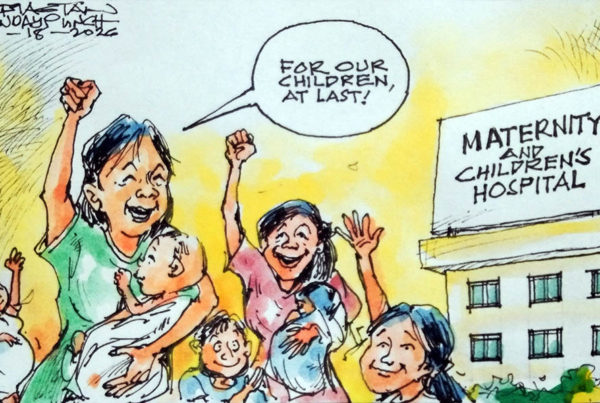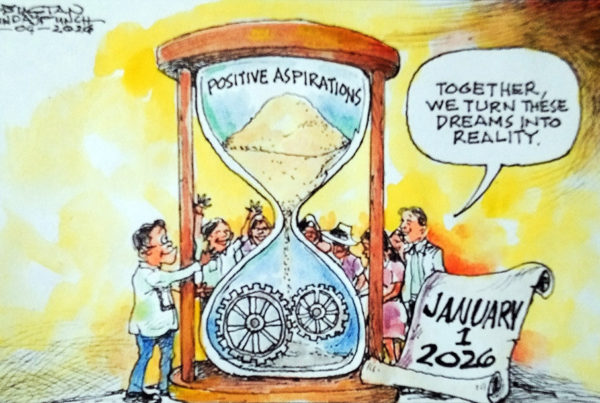Editorial
Culture of corruption
GOOD governance as the driving force of economic development has been the battle cry of President Benigno Aquino III’s administration as encapsulated in his “Matuwid na daan” slogan. He believes that by combatting corruption in government, the quality of life for Filipinos will be improved. His critics or political opponents have shrugged this off, including those who are in public service. It is likely that the biggest doubters are in fact those who are in government, the institution where a culture of corruption is deeply rooted. And the President recognizes this. He said in his 4th State of the Nation Address last week, “Panahon pa lang po ng nanay ko, narinig ko na ang hirit na, ‘Ano ngayon kung utos ng Malacañang?’ Anim na taon lang kayo diyan.” But midway in his six-year term, PNoy remains devoted to his crusade. He understands that the fight against the established corrupt system also means cleaning out the operatives behind it: the civil servants.
The elected top officials in local government could easily be at the mercy of an increasingly enlightened and intelligent voting public. The voters have the power not to put the corrupt or incompetent back in command of their community. But for career civil servants, who comprise the majority of the government machinery, they are well protected by the Civil Service Code. But this could change soon if Congress heeds the President’s appeal for a review of the law to tighten loose policies that enable those in public service to not just be corrupt but going about their daily working life being apathetic about their jobs.
In this part of his crusade, what the President is trying to achieve is not merely the ultimate goal of improving the economy through a responsive and transparent government, but to bring back pride and honor into public service. So taking the cue from PNoy’s SONA, government officials and employees – appointed, elected, or career servants – who can’t turn away from their corrupt activities and be dedicated public servants should be shamed and banished. Then perhaps one day soon, those who are in public service can proudly say: “I work in a good government.”
* * * * * *
Worst than barnacles
“SAAN sila kumukuha ng kapal ng mukha?” In English, roughly: “Where do they get the courage to be thick-faced?” To be thick-faced is also to have lost all self-respect. Or, to have lost all dignity as to see them routinely engage in hanky-panky, as in being corrupt and dishonest government employees. P-Noy said those words in his State of the Nation Address on July 22 and aimed them at the top guns of the bureaus of Immigration, Irrigation and Customs. Before that, P-Noy had fired the chiefs at Immigration and Irrigation bureaus but not Ruffy Biazon, the Customs boss.
Biazon said he immediately sent a text-message to P-Noy offering his resignation. He said the President said, “No.” But two Customs deputy commissioners – Danilo Lim and Jose Lorenzo Tanada – resigned the following day. Unlike Biazon, the two did it in writing. Four other Customs deputy commissioners have yet to resign. Are they thick-faced? We believe so. Biazon, too. They are insulted in public, short of being called corrupt and a bane to government efforts to pursue its “matuwid na daan (straight path),” what right, what moral suasion, do they still have to continue clinging to an office that they have disgraced as per P-Noy’s appraisal?
Resign. Irrevocably, and then vanish forever from the sight of a fuming public seemed all set to lynch you. “Kapalmuks (thick-faced)” are worst than barnacles.









